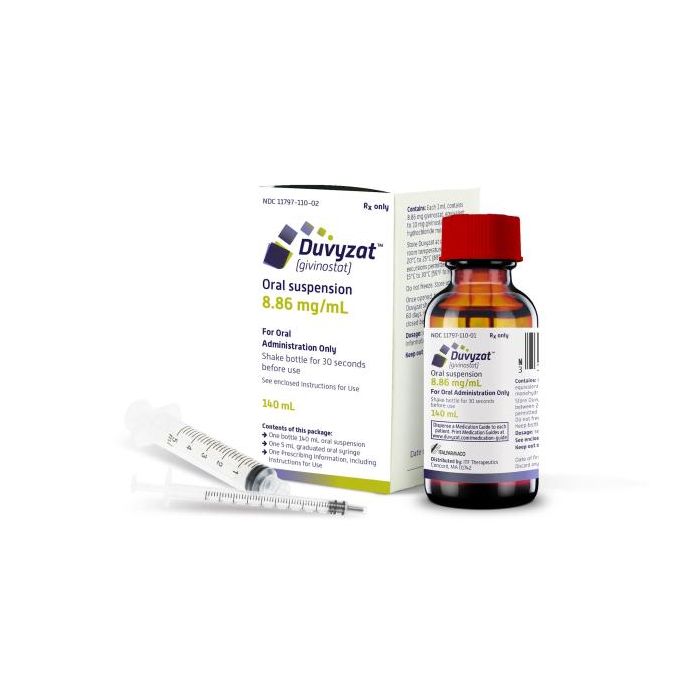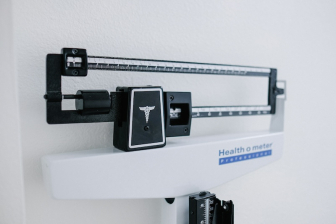Givinostat's role in polycythemia vera treatment: All you need to know
Last updated: 24 April 2024

You can legally access new medicines, even if they are not approved in your country.
Learn howUntil recently, patients with polycythemia vera (PV) were primarily treated with medicines that prevent thrombosis. However, clinical trials with newer therapies offer hope for a treatment that can change the course of the disease. One of these therapies is givinostat.
As a patient, what should you know about givinostat for polycythemia vera? Here's a summary of the latest clinical trial results, and what they mean for you.
Does givinostat work for polycythemia vera: Clinical trial results
Let's start by saying that givinostat is not yet approved anywhere for the treatment of PV. However, its efficacy and safety for this indication have been the focus of multiple clinical trials over the last years. From them, we have data to illustrate its potential. Below are some important highlights from the reported results.
Success rate of givinostat with hydroxycarbamide
A phase 2 trial of givinostat in combination with hydroxicarbamide focused on patients unresponsive to hydroxycarbamide alone. After 12 weeks of treatment, these were the reported results:
-
55% of patients treated with 50 mg/d givinostat and hydroxycarbamide showed complete or partial response. 64% experienced a reduction of their itching symptoms;
-
50% of patients treated with 100 mg/d givinostat and hydroxycarbamide showed complete or partial response. 67% experienced a reduction of their itching symptoms;
-
The combination treatment was well-tolerated. Only 4.5% of patients reported adverse events of Grade 3 or up 2.
Long-term efficacy
In a 4-year follow-up of three phase 1-2 studies and a compassionate use program, givinostat demonstrated these results:
-
The overall response rate was higher than 80%. Additionally, JAK2V617F allele burden decreased over time;
-
The responses observed lasted throughout the 4-year follow-up period;
-
Most patients experienced mild to moderate adverse events. This was consistent with previous findings;
-
Interestingly, the majority of patients continued their treatment with givinostat after the studies. This was due to its ongoing clinical benefit and good safety profile 1.
On the basis of these results, a phase 3 clinical trial is about to start. It aims to validate givinostat's safety and efficacy for polycythemia vera.
How is givinostat different from standard PV treatments?
Givinostat provides a different approach to treating polycythemia vera (PV) compared to standard therapies like hydroxycarbamide (HC). It targets cell proliferation by inhibiting cells with the JAK2 V617F mutation commonly found in PV patients. Studies have shown givinostat's effectiveness, even in patients who did not respond to HC. This suggests its potential as an alternative or supplementary treatment for PV.
Can my doctor prescribe givinostat for polycythemia vera?
The best answer is, maybe.
Duvyzat (givinostat) has not been approved anywhere for the treatment of PV yet. It's still waiting for EMA approval for it original indication to treat Duchenne muscular dystrhopy.
However, your treating doctor has the authority to prescribe it anyway. They can do so based on the available clinical trial results and your personal situation. If your doctor makes this decision, it's considered off-label use of the medicine.
Has your doctor prescribed givinostat to you for polycythemia vera? Everyone.org can help you access it. We specialize in sourcing and delivery of prescribed medicines unavailable in a patient's country. Contact us, so we can help you.
References:
- Long-term safety and efficacy of givinostat in polycythemia vera: 4-year mean follow up of three phase 1/2 studies and a compassionate use program. NCBI, 6 March 2021.
- A phase II study of Givinostat in combination with hydroxycarbamide in patients with polycythaemia vera unresponsive to hydroxycarbamide monotherapy. PubMed, Accessed 16 April 2024.





